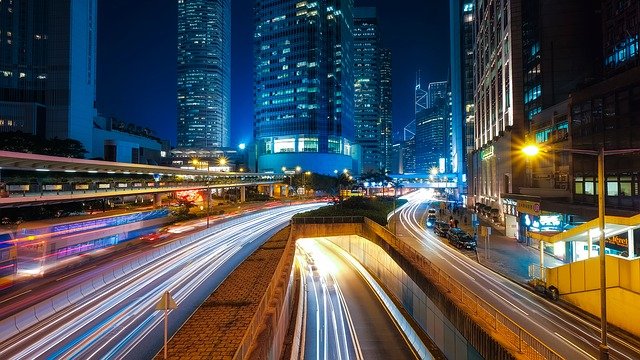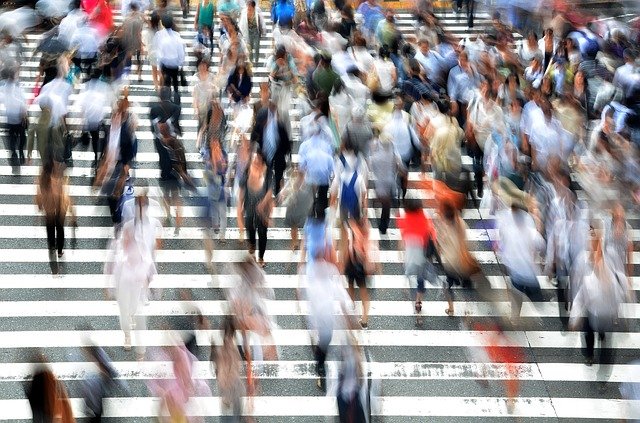Imagine living in a sustainable, efficient, safe city that provides more quality of life for all its inhabitants. This may seem like a utopian scenario, but cities like this exist and even have a name: smart cities, or smart cities.
Smart cities in Brazil are also a trend and have grown considerably in recent years.
In a light, the concept of smart city encompasses the application of technologies in the improvement of urban solutions, such as lighting, water treatment, transportation and leisure.
If you want to know more about smart cities in Brazil, this article has all the information you are looking for. We will talk about some of the main Brazilian smart cities and trends within this segment.
Without further ado… let's go to the content!
Smart cities in Brazil: what is the concept of smart cities?
Smart cities can be regarded as smart cities, which use information technology to provide a safer, more efficient and pleasant life for their inhabitants.
Smart cities are based, for example, on concepts of digital transformation such as urban planning, architecture, the optimization of mobility – both pedestrians and cars – the use of clean energy, conviviality among its inhabitants, among many other resources.
Contrary to what one might think, there are many smart cities in Brazil, they are not an exclusivity of more developed countries! We'll talk about it in the next topic, check it out.
What are the smart cities in Brazil?

Defining what is, or is not, a smart city, is not an easy task. There are many criteria taken into account when we analyze what makes a city effectively a smart city.
Despite this, there are today several agencies focused on determining the level of technological advancement around the world. The Connected Smart Cities 2021 ranking is the result of the efforts of some companies in the segment and, annually, determines which are the main smart cities in Brazil and the innovations they implement.
Connected Smart Cities consists of 75 indicators, which spread over 11 thematic axes:
- Mobility;
- Urbanism
- Environment;
- Technology and Innovation;
- Entrepreneurship;
- Education;
- Health;
- Safety;
- Energy;
- Governance;
- Economy.
Want to know what are the main smart cities in Brazil, according to these indexes? We tell you all about them now.
Sao Paulo (SP)
The broadband of the capital of São Paulo has an average speed of 93.7 Mbps and 99.8% of the population has 4G coverage.
The city also has a computerized real estate registry, with geographical references and widely available to citizens. The public health network has online appointments and, overall, there is an increase in the number of employees of 7.68% in 2021.
São Paulo also has smart traffic lights and has already implemented the payment of tickets on public transport through pix. The city has more than 600 km of bike paths, with a ratio of 5.53 kilometers of bike path per inhabitant.
Florianópolis (SC)
The city of Santa Catarina has 28.3 kilometers of bike path for every 100,000 inhabitants, an index 5 times higher than that of the city of São Paulo. In addition, 0.15% of its vehicle fleet is low carbon.
Florianópolis also offers 24 public university vacancies for every thousand inhabitants of economically active age.
The city of Florianópolis also has an average speed of 92.5 mbps between broadband connections, with a density of 125 accesses per 100 households.
Curitiba (PR)
The capital of Paraná stands out because it has 4 technological centers and 7 business incubators, registering a growth of 4.76% in the number of technology companies,
The investment in Infrastructure and Mobility in the city was R$ 594 per inhabitant.
The city also has 100% 4G coverage in the municipality, density of 100.2 broadband accesses for every 100 households, scheduling system for consultation of the public health network and note 9.6 in the Brazil Transparency Scale.
Brasilia (DF)
The capital of the Federal District has 7 fiber optic operators, average broadband connection speed of 95.6 mbps and 99.6% of the city's residents covered by 4G service.
In addition, the city has 3 technological centers and 4 business incubators. Brasília also offers 18.3 kilometers of bike path for every 100,000 inhabitants and 0.11% of the low-emission vehicle fleet.
Victory (ES)
Vitória stands out in the education axis with the offer of 17.45 vacancies in public universities for every thousand inhabitants over 18 years. The municipal investment per capita in education is more than one thousand reais per inhabitant.
The city also has 100% solid waste collection, with risk area monitoring, and 0.21% percentage of vehicles registered in the city with low emissions.
In total, 100% of the population is covered by 4G technology, with an average speed of 100.5 mbps in the city's broadband, broadband density of 93.05 accesses for every 100 households.
Technologies used in smart cities in Brazil

As you can see above, smart cities are shaped over ecosystems with multiple technologies. They all work together to improve the quality of life of their citizens. Check out the main innovations of Brazilian smart cities.
Internet of things
In a way, IoT is the way common appliances, such as appliances, connect to each other and can exchange information. Such devices have intelligent sensors, connected to the Internet, enabling this communication.
A great example of IoT device are smartwatches, which communicate with smartphones, as well as smart TVs, robot vacuum cleaners and other technologies. With them, you can automate various aspects of an environment.
Shared economy
If you use racing apps, it's already part of the shared economy. Its concept is quite simple: it involves the establishment of a new social economic model, which aims to take advantage of the resources of a region intelligently.
This initiative is evident in the various shared establishments that we see in numerous Brazilian cities, such as coworking spaces, shared laundries, among others.
Town planning
The novelty here is to plan urban centers with a focus on the environment. One of the main discussions of this century is how to find a balance between human and technological developments and the preservation of the environment.
The beginning of this journey is to rethink how cities are built and how the population resides in these spaces.
If before the constructions generated irreparable damage to the environment, today they are designed to live harmoniously with the human being and nature.
In this sense, the planning of green spaces, intelligent disposal of garbage, conscious use of water, planting of new native species and the preservation of local fauna have gained importance in the creation of enterprises.
Smart traffic
Problems with traffic is a reality in all Brazilian cities. Therefore, the idea of intelligent traffic involves improving urban planning, which we quote right above.
From this, people can spend less time on the road, public transport becomes faster and more efficient, and impactless the environment.
Of course, it is not easy to implement this strategy. But as technology advances, solutions also evolve —smart traffic lights, exclusive lanes for public transportation, and planned streets.
For users, the first measures of intelligent traffic came with bus applications, which indicate more accurately when the next public transport will arrive.
Trends for smart cities in Brazil
The phenomenon of smart cities, of course, is not one that has occurred since a few years ago. This is a process in active construction for some decades and its progress is due to numerous technological innovations.
Some of the trends for Brazilian smart cities are:
- Application of technology and 5G antennas;
- Payment by approximation;
- Data-driven decisions;
- Focus on human capital;
- Optimization of public space;
- Investment in mobility solutions;
- Connectivity and IoT.
Smart cities challenges in Brazil

Even with technology transforming the way we live daily, there are still numerous challenges to be faced before the concept of smart cities is widely disseminated in Brazil.
The first obstacle is the lack of a heavier investment in resources for the deployment of intelligent systems. However, AI (Artificial Intelligence) already exists to facilitate this process.
Chatbots, for example, allow citizens to find out more quickly what public policies are being carried out. This approximates the relationship between the state and the population. Consequently, your lifestyle is improved.
Conclusion
Did you like to know more about the main smart cities in Brazil? The cities of São Paulo, Florianópolis, Curitiba, Brasília and Vitória represent everything that is most modern when we talk about urbanity and development.
All of them rely on telecommunications technologies to provide a more connected and efficient environment for their inhabitants.We hope that this article has helped clarify some of the most important points about smart cities and their role in urban development for the future. To learn more about technology and communication, visit master's blog.
